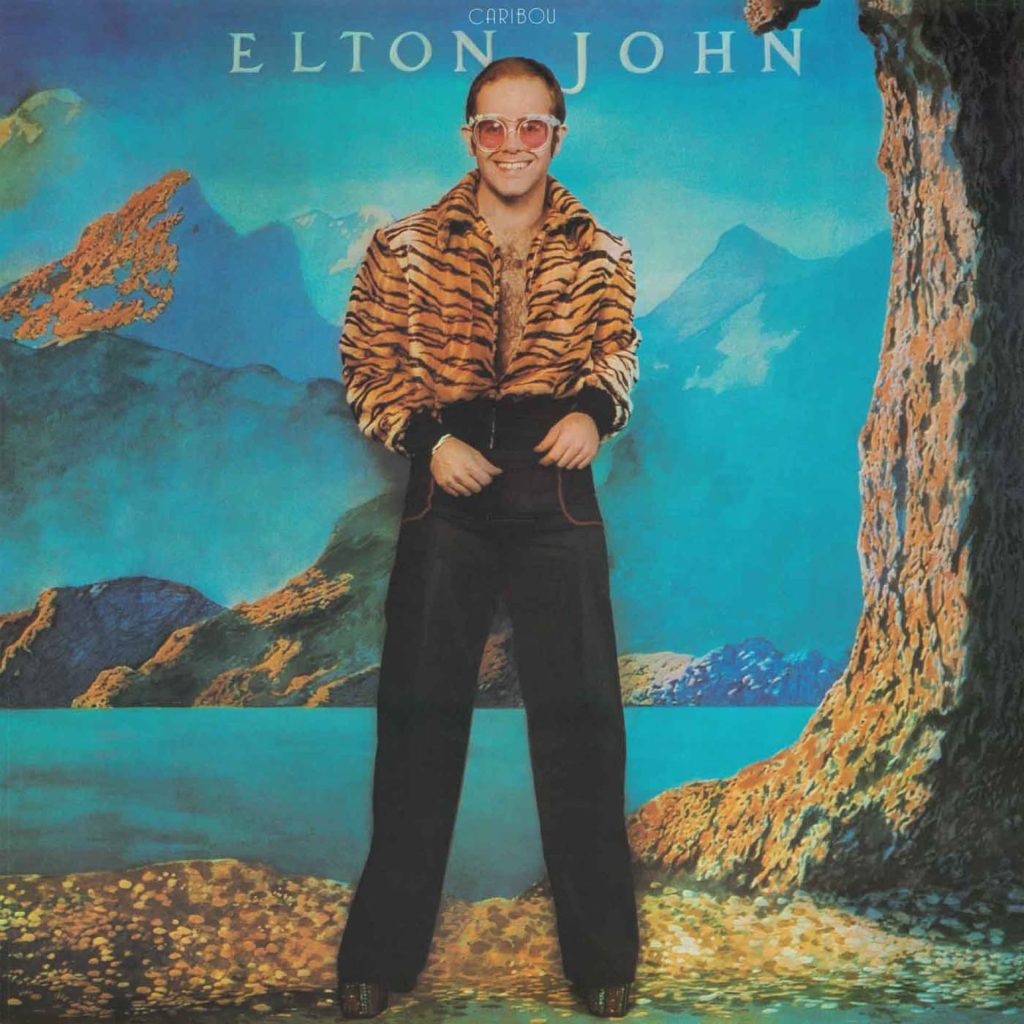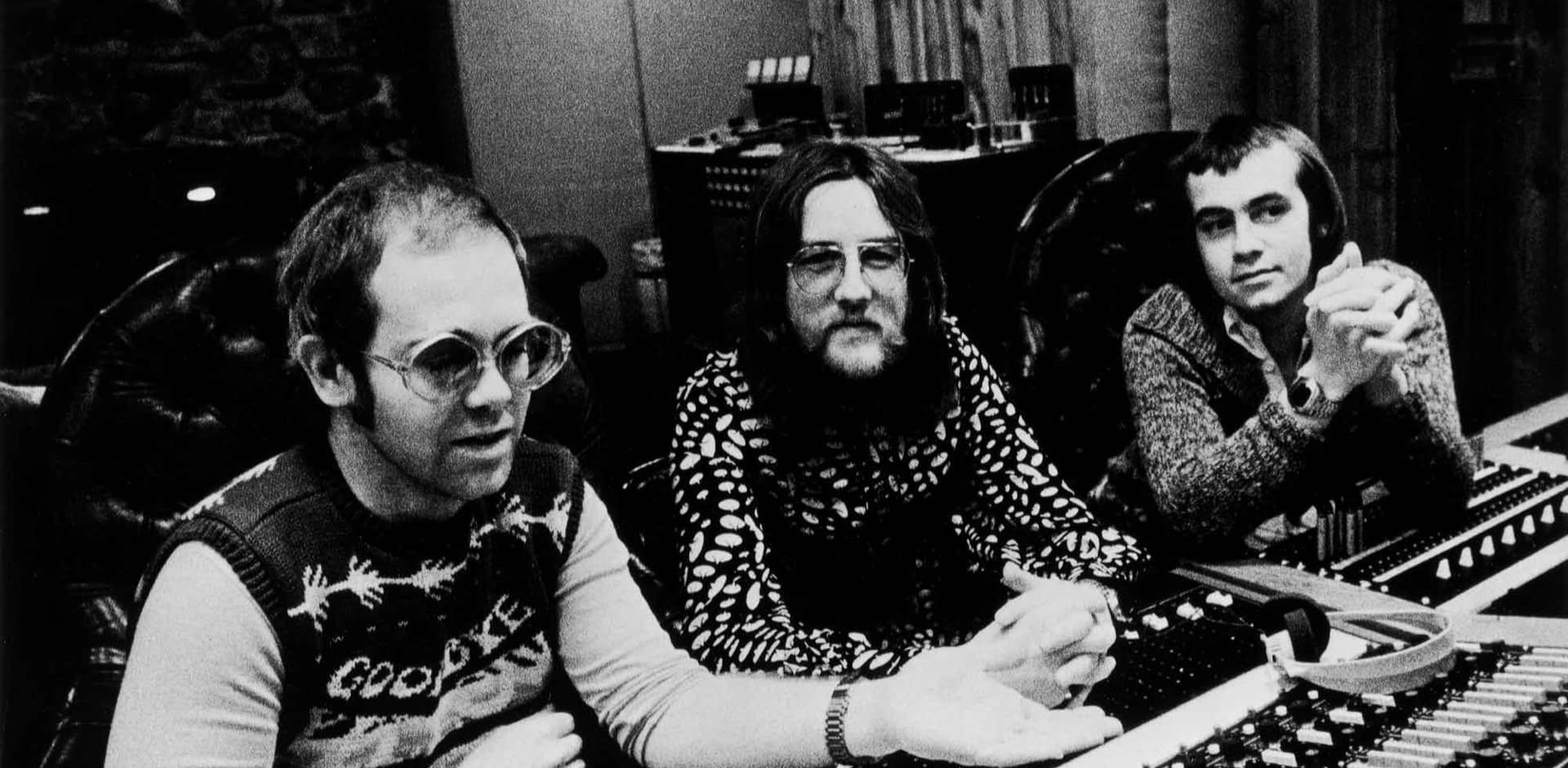Menu
JULY 21, 2017
Ten Things You May Not Have Known About ‘Don’t Shoot Me…’ and Caribou’
In celebration of today’s 180gm vinyl reissues of Don’t Shoot Me I’m Only The Piano Player and Caribou (both remastered by Grammy Award-winning mastering engineer Bob Ludwig) we offer ten things you may not have known about Elton’s 6th and 8th studio albums.
By John F. Higgins

- Don’t Shoot Me… spent 89 weeks (that is nearly two years!) on the Billboard Top 200 album chart, two weeks at No. 1, and 42 weeks on the UK Album Chart (UKAC), six of them at the top position.
- The 1973 album was written in 10 days at the studio where it was recorded in June 1972, the Château d’Hérouville in France.
- Don’t Shoot Me…‘s first single, Crocodile Rock, reached No. 1 in the US and No. 5 in the UK. The follow-up, Daniel, peaked at No. 2 in the US and No. 4 in the UK.
- There are two stories behind the album’s unusual title: one says that the phrase was on a plaque that Bernie had found in an American junk store, inspiring Elton to name his sixth studio album. The other is that it is a derivation of the 1960 François Truffaut film “Shoot The Piano Player” and was inspired by a comic moment Elton had with his new friend Groucho Marx.
- Don’t Shoot Me… was lauded in the press upon its release. Robert Hilburn wrote in the LA Times, “Another triumph for Elton John, further proof that his is as good a guarantee of record player as any name you find.” Rolling Stone’s Stephen Holden said, “If Honky Château established Elton John as a leading contender for bantam-weight championship of rock and & roll, Don’t Shoot Me… should hand him the title.” And Charles Shaar Murray of the New Musical Express exclaimed that it is “A damn good album. Purchase it, glory in it, dance to it, and play it to your friends.”

Elton, producer Gus Dudgeon, and Bernie Taupin during the Caribou sessions.
- Caribou rode the No. 1 album position in the US for four weeks, staying on the Billboard Top 200 chart for over a year, while also topping the UKAC for two of its 18 weeks on that list.
- The album’s ten songs, plus two non-LP B sides, Sick City and Cold Highway, were written and recorded at Caribou Ranch in Nederland, CO, in just over a week during January 1974 and released a mere six months later.
- It is the second of six studio albums Elton has named in reference to where they were created: Honky Château, Caribou, Rock Of The Westies, Made In England, Songs From The West Coast, and Peachtree Road.
- Two of the background singers on Caribou also had successful careers of their own. Dusty Springfield (on The Bitch Is Back) was a massive star in the 1960s, with hit songs that included I Only Want To Be With You, You Don’t Have To Say You Love Me, and Son Of A Preacher Man. Toni Tennille (on Don’t Let The Sun Go Down On Me) was the singer in Captain & Tennille, who charted in the 1970s with Love Will Keep Us Together, Lonely Night (Angel Face), and Muskrat Love, amongst others.
- The press continued to be keen on Elton, singling out the album’s first 45: “Not only is [Don’t Let The Sun Go Down On Me] one of Taupin’s finest set of lyrics, Elton’s vocal and Dudgeon’s production work convey brilliantly the desperation and urgency of the words,” wrote Robert Hilburn in the Los Angeles Times. And Jim Linck noted in the News-Press/Daily Review that Caribou “continues Elton John’s unbroken string of hit albums that contain some of the best music being played today.”
